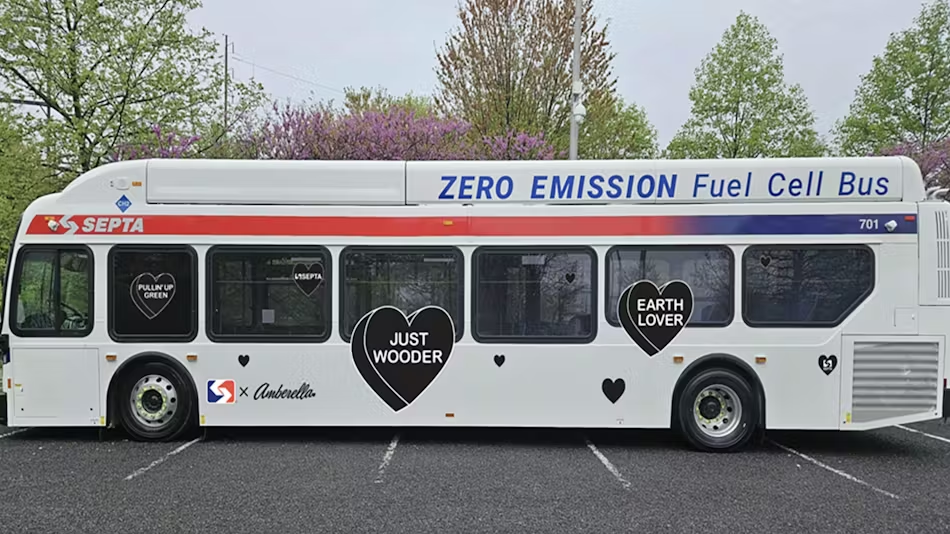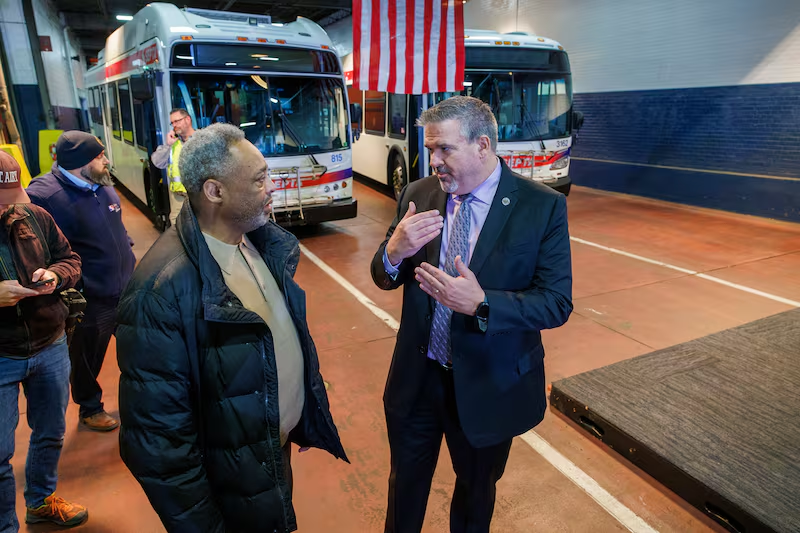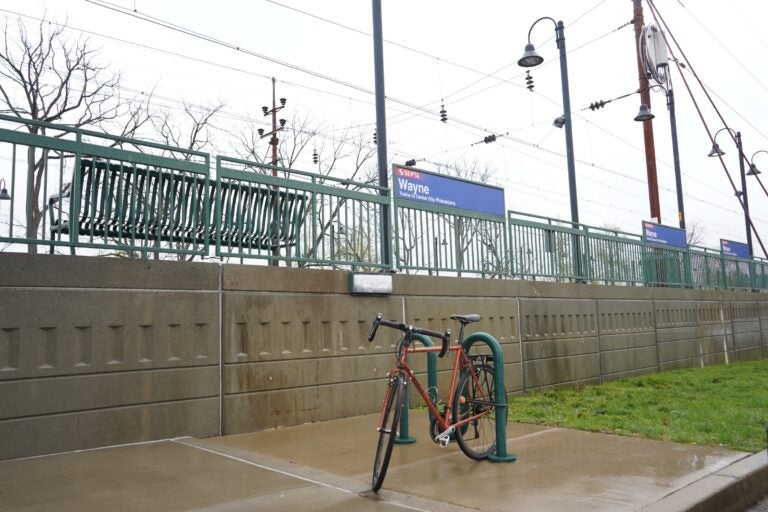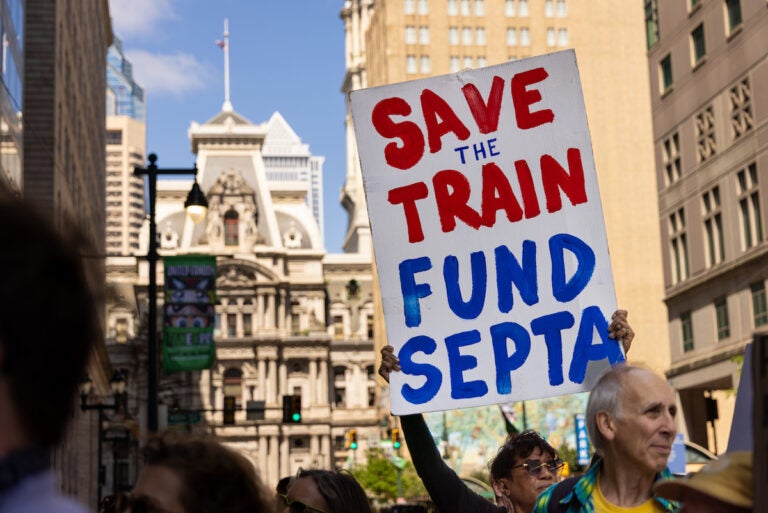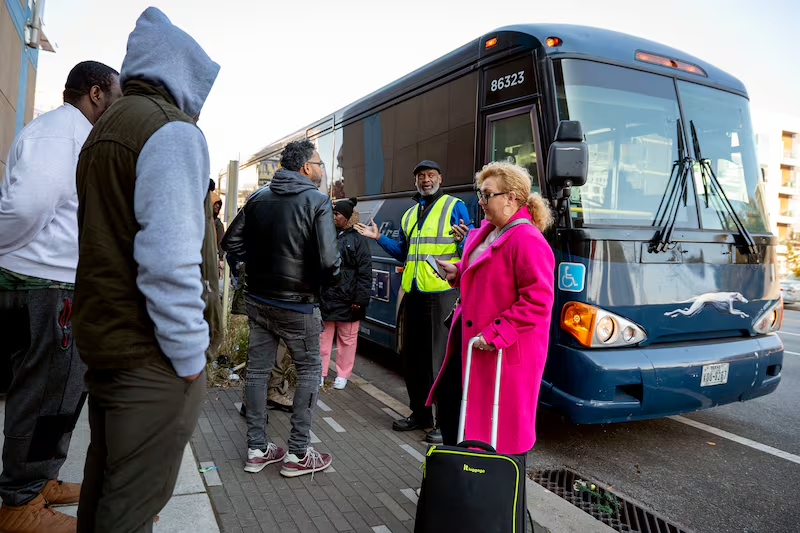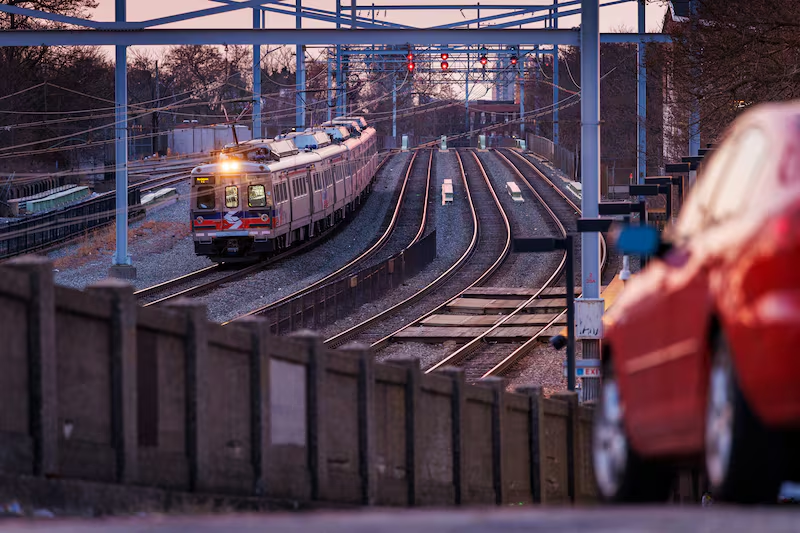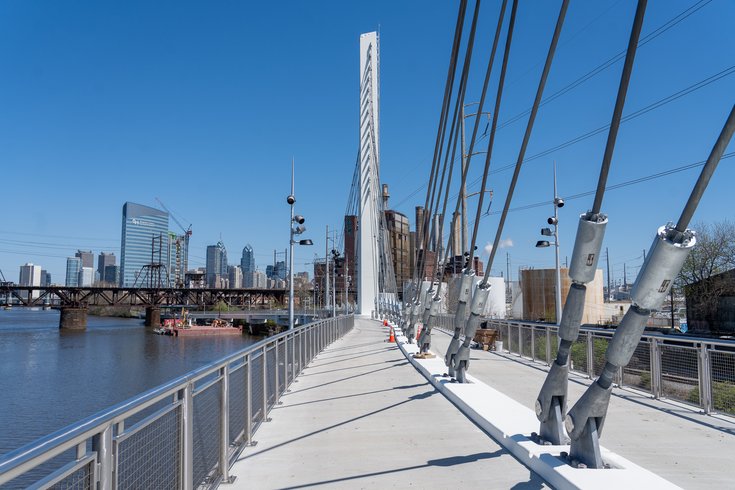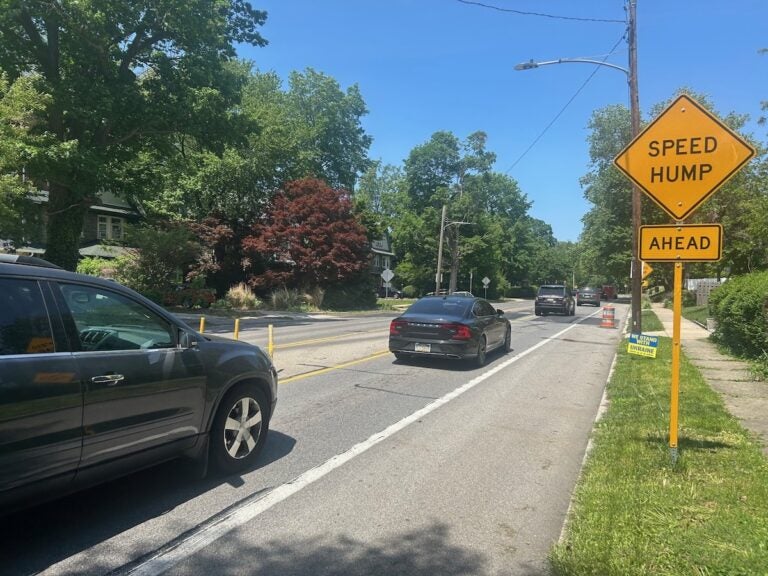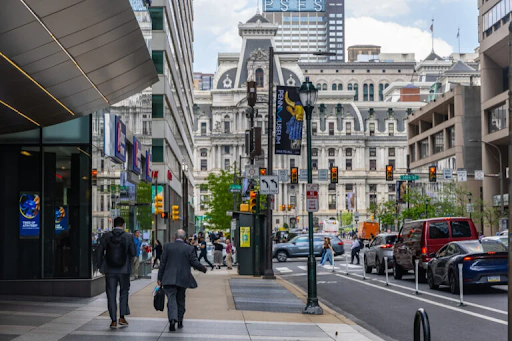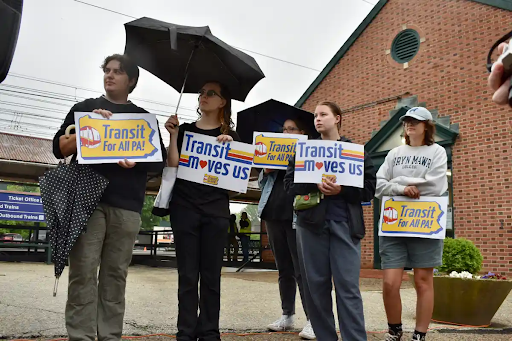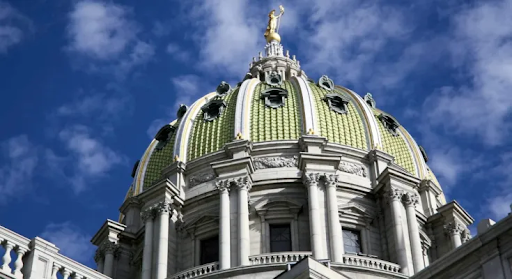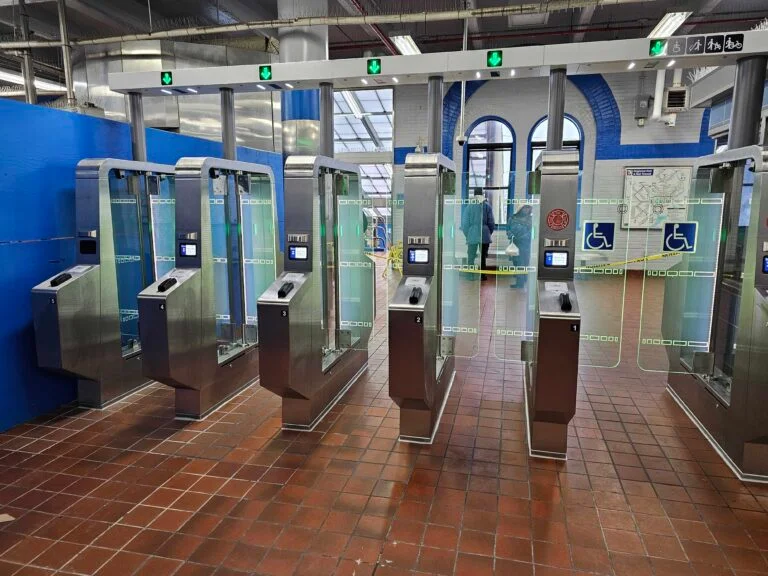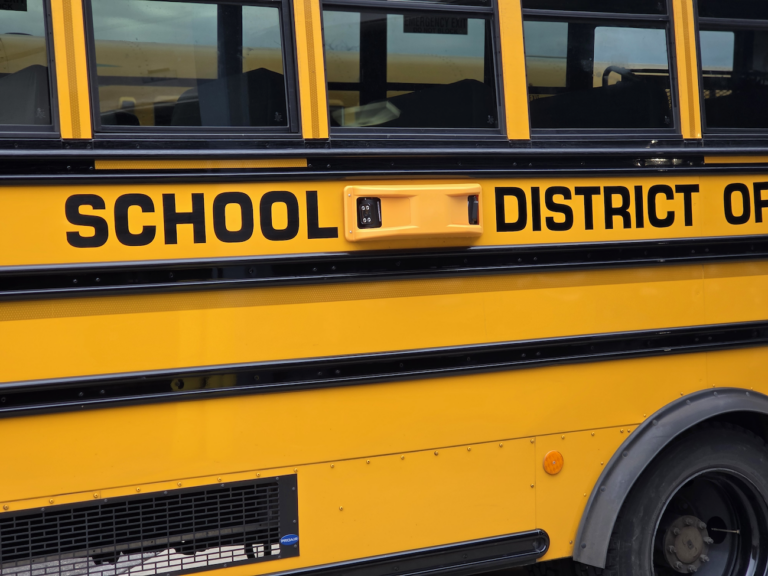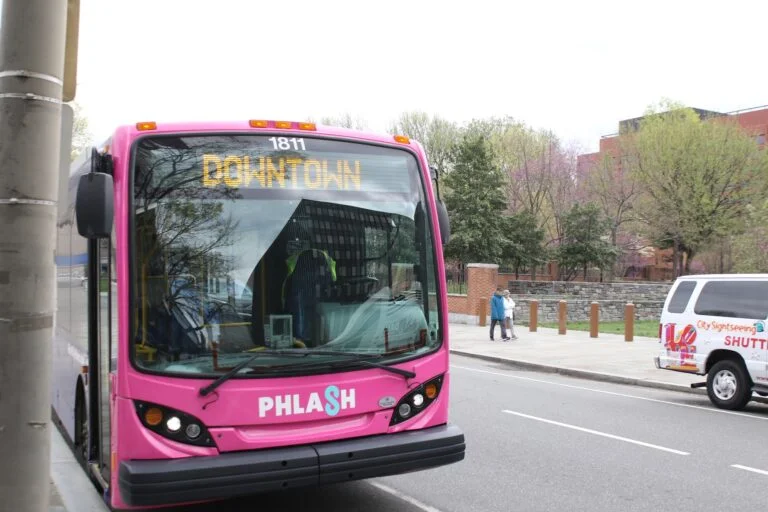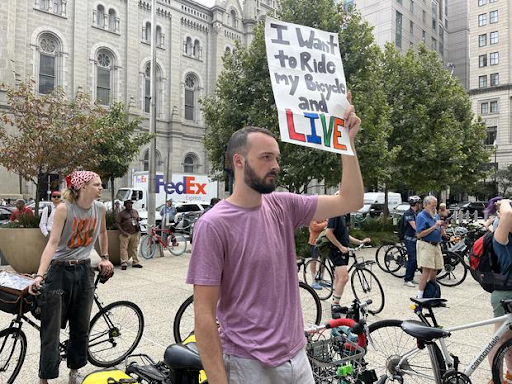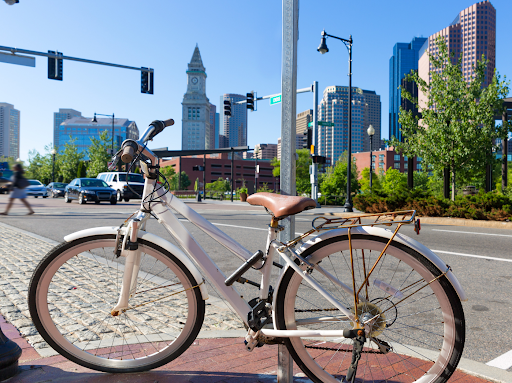“The Hub” is a weekly round-up of transportation related news in the Philadelphia area and beyond. Check back weekly to keep up-to-date on the issues Clean Air Council’s transportation staff finds important.
Join the Transit For All PA campaign for sustainable transit funding to keep our State moving forward.
Billy Penn: How to find transit resources for aging adults in Philly – Adults 65 and older can obtain a SEPTA Key Senior Fare Card, which allows free rides on all SEPTA services in PA and 50% off Regional Rail services that start or end in New Jersey or Delaware. This card is available via appointments at the SEPTA headquarters or participating State Senate and State House district offices. Certain eligible seniors can also participate in SEPTA’s CCT Connect program, which offers door-to-door ridesharing services.
Mass Transit: SEPTA rolls out first hydrogen-powered buses into revenue service – The first two of SEPTA’s 10 hydrogen fuel-cell electric bus fleet have officially entered revenue service, as part of a pilot program designed to measure the buses’ performance. The buses are a huge milestone in SEPTA’s zero-emissions bus (ZEB) program, featuring zero tailpipe emissions, lower greenhouse gas emissions, and decreased noise pollution.
The Inquirer: SEPTA appoints Scott Sauer, former trolley driver, as permanent general manager – On Monday, SEPTA board officials appointed Scott Sauer as general manager, a position he has held in an interim status since December. Sauer has worked in various roles at SEPTA for 35 years. Board members are optimistic about his ability to lead the agency through its budgetary upheaval.
Other Stories
City of Philadelphia: Wrapping Up National Bike Month with a Look at Recent Events & Upcoming Projects
WHYY: Fire that damaged multiple decommissioned SEPTA buses at Philly storage yard now under control
KYW Newsradio: Pa. lawmakers, transit advocates rally for state funding to avoid SEPTA service slashes
The Inquirer: Pine and Spruce Street residents sue over Philly’s efforts to upgrade bike lanes
“The Hub” is a weekly round-up of transportation related news in the Philadelphia area and beyond. Check back weekly to keep up-to-date on the issues Clean Air Council’s transportation staff finds important.
Join the Transit For All PA campaign for sustainable transit funding to keep our State moving forward.
Plan Philly: Looming SEPTA cuts could increase climate pollution in the Philly area – The Delaware Valley Regional Planning Commission predicts that SEPTA’s looming service cuts would dramatically increase Philly traffic, estimating an increase of at least 275,000 cars on Philly-area roads daily. These higher levels of traffic could increase Philly’s overall carbon emissions by 1%.
Plan Philly: SEPTA board pressed for answers over proposed cuts: ‘Are people just supposed to walk?’ – SEPTA held the first of a series of public hearings on Monday at its headquarters on Market Street. Dozens of SEPTA riders shared testimony about how essential public transportation is to their daily lives, urging the agency’s board to avoid service cuts.
The Inquirer: Peter Pan CEO offers to turn Roundhouse into a bus terminal depot – At a City Council hearing on Wednesday, Peter A. Picknelly, chairman and CEO of Peter Pan Bus Lines, offered to develop the abandoned Roundhouse police headquarters on Race Street into a badly needed intercity bus terminal. Currently, passengers riding on intercity bus lines convene near Spring Garden Street and Delaware Avenue, a location that was meant to be a temporary solution.
Other Stories
BillyPenn: Riders call SEPTA essential to their lives and plead for state funding
The Inquirer: On Day 1 of SEPTA’s public budget hearings, riders were scared by proposed cuts
NBC10: SEPTA workers bring their funding battle to Harrisburg, Pennsylvania
PlanPhilly: Some popular SEPTA bus routes may disappear before others with low ridership. Here’s why
NorthJersey.com: As NJ Transit trains start to roll again on May 20, here’s how talks played out
Mass Transit: PA: FlixBus to begin service from Reading to Philadelphia and New York
“The Hub” is a weekly round-up of transportation related news in the Philadelphia area and beyond. Check back weekly to keep up-to-date on the issues Clean Air Council’s transportation staff finds important.
SEPTA’s Budget Hearings: Register to attend the budget hearing on May 19th at 11:00 am in SEPTA’s Board Room or register here for the 5:00 pm time slot. You can also join the budget hearing scheduled for May 20th and the Capital Budget hearing on May 21st. Let’s show up for public transit!
The Inquirer: Amid financial crisis, SEPTA is pushing ahead with a money-saving efficiency effort – SEPTA’s Efficiency & Accountability program has reportedly generated $91.4 million since the program’s initiation in 2021. The program’s fresh focus includes initiatives to improve efficiency in safety, deter fare evasion, and gain income from development deals around SEPTA’s transit properties.
PhillyVoice: New Schuylkill River trail segment and bridge connecting Grays Ferry to Center City opens Saturday – The new Christian to Crescent addition of the Schuylkill River Trail, featuring 2,800 feet of pedestrian and cyclist pathways and a 650-foot bridge, will open on Saturday. The woven, cable-stayed design of the bridge is the first in the state, according to city officials.
Plan Philly: Philly hopes to slow down traffic on Lincoln Drive by adding speed slots – New speed slots are being installed on a residential stretch of Lincoln Drive, in West Mount Airy, with the intention of slowing down drivers and reducing crashes that endanger residents and pedestrians. The sets of speed spots are part of a pilot project with PennDOT that was catalyzed by a wave of neighborhood activism.
Other Stories
NBC 10: ‘Transit is vital’: SEPTA workers rally at Pa. capitol in fight for funding
Philly Voice: NJ Transit train engineers strike over wage dispute, halting rail service
The Inquirer: Pa. Supreme Court hears arguments over whether a special prosecutor for SEPTA crimes is unconstitutional
The Inquirer: NJ Transit rail engineer are on strike. Here is what you need to know.
NBC10: PPA delays start of fines for running red light at busy Center City intersection
“The Hub” is a weekly round-up of transportation related news in the Philadelphia area and beyond. Check back weekly to keep up-to-date on the issues Clean Air Council’s transportation staff finds important.
PlanPhilly: Philly’s commuter foot traffic outpaced most peer cities’ downtowns in 2024 – Commuter foot traffic into Center City has rebounded to rates higher than downtowns in other cities, according to the annual State of Center City report released Thursday. About 73% of workers in Philadelphia — commuters and downtown residents — are back in person across Center City offices in 2024, up from 69% in 2023.
Metro Philadelphia: Fares up, service down: SEPTA riders sound the alarm – Montgomery County elected officials, university administrators and students, and transit advocates gathered at Bryn Mawr Station – slated for closure along with the entire Paoli-Thorndale Line – to call on Harrisburg lawmakers to provide additional funding to avert the proposed SEPTA “Doomsday Budget”. The news conference is part of a wave of pro-transit activism that has stretched from City Hall to the suburbs since SEPTA leaders last month unveiled a plan to implement a 45% service cut and 21.5% fare increase to address SEPTA’s $213 million budget deficit.
MyChesCo: Pennsylvania Lawmakers Push $292.5 Million Transit Funding Plan – On Monday, May 5, legislation to allocate $292.5 million for public transit infrastructure was approved by the Pennsylvania House Transportation Committee. Authored by Majority Chair Rep. Ed Neilson, the proposal aligns with Gov. Josh Shapiro’s 2025-26 budget, which prioritizes significant investment in the state’s transit system. The legislation addresses the looming fiscal challenges and underscores the importance of protecting transportation options for vulnerable groups, including seniors, people with disabilities, and those reliant on paratransit services, noting that public transit is used in all 67 counties of Pennsylvania. It now heads to the full House for a vote.
Other Stories
The Inquirer: Bike lane opponents challenge city plan for loading zones on Pine and Spruce Streets
BillyPenn: As city looks to ‘cap’ Vine Street Expressway, it seeks Chinatown community feedback
CityLab: The Life of the Most-Used Citi Bike in New York City
Pittsburgh Union Progress: As traffic grows, Pennsylvania Turnpike adds to capital spending for road, office upgrades
“The Hub” is a weekly round-up of transportation related news in the Philadelphia area and beyond. Check back weekly to keep up-to-date on the issues Clean Air Council’s transportation staff finds important.
NBC10: Jumping a turnstile at a SEPTA station could cost you $300 – Amidst its budget crisis, SEPTA is ramping up efforts to prevent fare evasion by adding warning signs, installing special “fare evasion” gates that have full-length glass doors, and issuing more citations to evaders. SEPTA riders who jump turnstiles face a $300 fine.
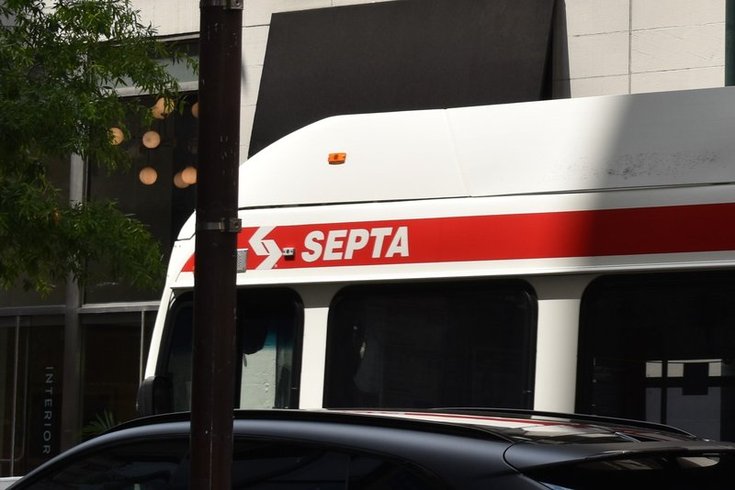
PhillyVoice: Proposed Transit Access Fund would protect Zero Fare program for low-income SEPTA riders – On Thursday, city councilmember Nicolas O’Rourke introduced a proposed bill package that would direct 0.5% of the city’s general fund to a Transit Access Fund, to permanently fund the Zero Fare Initiative. The pilot program provides free SEPTA access to low-income Philadelphians.
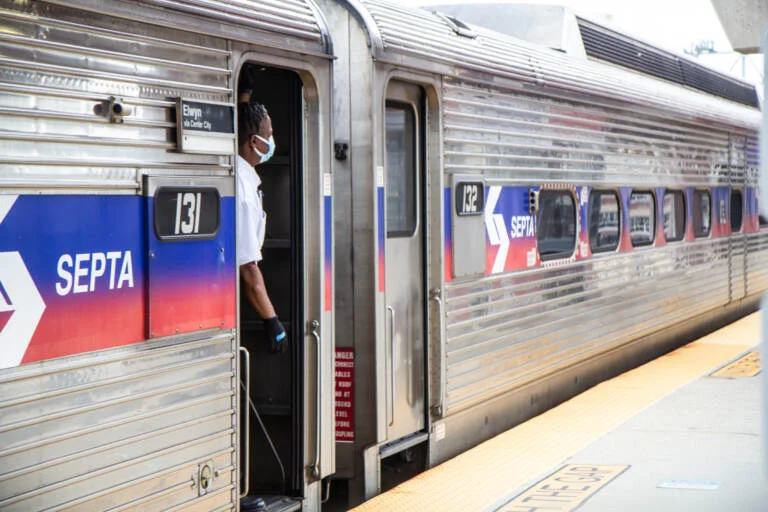
WHYY: Without SEPTA, Philly businesses worry about lack of parking, traffic gridlock – SEPTA services are a critical part of the commute for as many as 9,000 University of Pennsylvania Health System employees, in addition to patients visiting the hospital. Concerns about the lack of accessibility of the hospital and overflowing parking lots are among issues raised by SEPTA’s proposed service cuts.
Other Stories
The Inquirer: A Morse code-like system governs when and how train engineers sound their horns
PlanPhilly: Philly’s commuter foot traffic outpaced most peer cities’ downtowns in 2024
Pittsburgh Union Progress: Emotional testimony, Democratic funding proposal highlight hearing on transit cuts
NBC10: Expect a slow ride along stretch of City Avenue as crews pave pedestrian bridge
The Inquirer: More roundabouts could be coming to the Philadelphia area soon

In celebration of Earth Day, Clean Air Council will be tabling and/or in attendance at the following events. We hope to see you there!
Environatal Day at Bartram’s Garden | April 17th 10-2pm
Join Nature Momz at Bartram’s Garden for an organized group walk along the trail to discuss maternal health, air quality, and the impact of the environment on mothers and infants. Free to all and no registration is required.
In partnership with the Philadelphia Regional Center for Children’s Environmental Health, Clear Air Council, Nurturely and a Place for Ummi Maternity Care.
Spring Fest at Bartram’s Garden | April 19th 10-2pm
Join Bartram’s Garden for their annual spring celebration! Activities will include a guided tour of the Garden’s 19th-century flower garden, a youth-led block printing activity, hands-on natural dye activity, an annual plant sale, and so much more. Clean Air Council will be tabling at the event, so stop by to learn more about the smoke contamination issue at Bartram’s Garden.
SEPTA’s Earth Day Celebration | April 21st 11-2pm
SEPTAs Sustainability Department is hosting its annual Earth Day Expo. Check out SEPTAs Zero Emission Fuel Cell buses, learn more about SEPTA’s sustainability practices, and visit Clean Air Councils table to learn more about our transportation programs.
Earth Day Expo at Temple University | April 22nd 11-3pm
Join the Office of Sustainability and TSG Sustainability Committee for an Earth Day Expo to learn more about sustainability on campus through student involvement, departmental research, and action plan development. Clean Air Council will be tabling at the Expo, so stop by to learn more about the Council’s transportation programs.
Swissvale Community Garden Earth Day Cleanup | April 22nd 6-8pm
Join the Swissvale Community Garden to help clean out garden beds and prepare for the growing season. Clean Air Council organizers will be in attendance to discuss our composting program and how to start composting.
Mt. Lebanon Earth Day Event 2025 | April 27th 11-3pm
Join us for live music, vendors, henna art, yoga classes, a kids bike course, and so much more at the Mt. Lebanon Earth Day Event. Stop by Clean Air Councils table to learn more about our programs in Southwest Pennsylvania.
“The Hub” is a weekly round-up of transportation related news in the Philadelphia area and beyond. Check back weekly to keep up-to-date on the issues Clean Air Council’s transportation staff finds important.
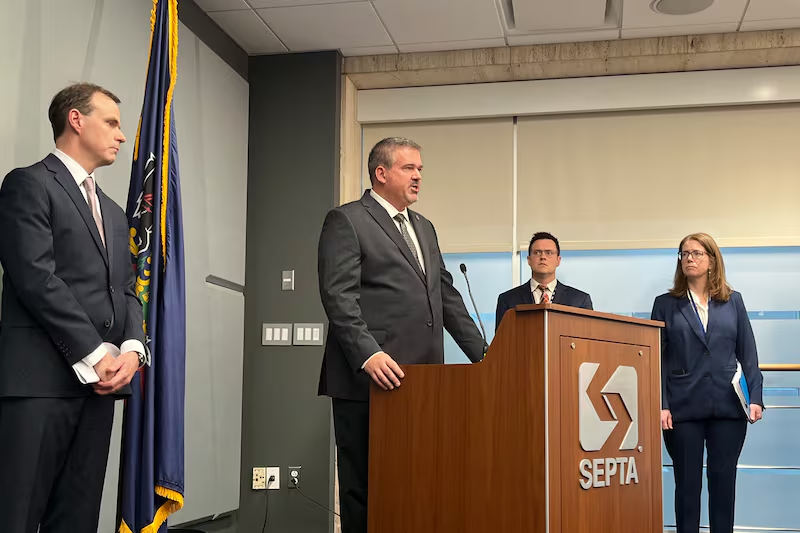
SEPTA in Crisis: SEPTA’s doomsday scenario is here: if you didn’t catch it last week, SEPTA announced a proposed $2.6 billion budget that would see vastly reduced service and fare hikes. SEPTA’s financial crisis has been impending for years; this proposed budget includes the potential elimination of 55 bus routes, five Regional Rail lines, and 66 stations. To avoid cuts, our state legislators must pass a budget that properly funds public transit and prevents our transit agencies from reducing services and increasing fares. SEPTA riders who depend on public transportation to access school, doctor’s appointments, and other vital daily needs in the city gathered to decry essential service cuts in a rally last Friday. State Senators Nikil Saval, Vincent Hughes, Joe Hoehenstein, and other local politicians, union members, and advocacy group leaders were present.
If you care about SEPTA and public transit in our state, take action by contacting your legislators here.
WHYY: Program places cameras on Philly buses to record motorists who illegally pass – 20 buses from the Philadelphia School District have been equipped with cameras in a new pilot program aimed at deterring drivers from illegally passing stopped school buses as students board and exit. The cameras, donated by vendors BusPatrol and Gatekeeper Systems, Inc., for no cost for the current school year, will provide data that will be monitored via AI and sent to the school district.
WHYY: Philly PHLASH adds 2 new bus stops, helping locals and visitors ‘explore every single attraction’ – The seasonal PHLASH bus service has added 2 new bus stops, increasing accessibility to spots like the Mütter Museum and Rittenhouse Square. The first stop is on Arch Street, between 5th and 6th streets; the second stop is on the Ben Franklin Parkway, between 21st and 22nd streets.
Other Stories
Mass Transit: PA: Philly’s 250 plans challenged as SEPTA funding crisis looms
City & State Pennsylvania: From Philly to Pittsburgh, mass transit leaders sound the alarm on funding shortfalls
WHYY: Main Line business leaders say proposed SEPTA cuts would be ‘absolutely devastating’
Mass Transit: Amtrak, NJ Transit highlight infrastructure, equipment improvements in new report
PhillyVoice: NJ Transit engineers reject deal, setting stage for possible strike in May
“The Hub” is a weekly round-up of transportation related news in the Philadelphia area and beyond. Check back weekly to keep up-to-date on the issues Clean Air Council’s transportation staff finds important.

PhillyVoice: New SEPTA Regional Rail schedules take effect to improve service reliability – As of Sunday, the schedules of 13 regional rail lines have been adjusted to improve efficiency. These schedule changes, in addition to strategic staffing and maintenance crew deployments, aim to reduce delays and bolster service reliability. Image Source: PhillyVoice

The Inquirer: PATCO will stop running overnight trains to clean its stations – For six months this spring, PATCO will stop running overnight trains, from midnight to 4 a.m., on weekdays as its 13 stations are deep cleaned. The agency is coordinating with the city, social service organizations, and South Jersey municipalities to make stations cleaner and safer. Image Source: The Inquirer

NBC10: PATCO finally has reopening date for long-shuttered Franklin Square Station – On April 3rd, the renovated Franklin Square Station at 7th and Race will reopen for the first time in decades, expanding the PATCO line to 14 stations. Train service to the station will begin in the afternoon following a ceremony at noon. Image Source: The Inquirer
Other Stories
PhillyVoice: Market Street Bridge to close for 14 months starting August 2026 during $149 million rebuild
The Inquirer: Philly council members tabled a bill over concerns about bringing speed cameras to school zones
PhillyVoice: Reopening of MLK Drive Bridge pushed back to September after cold weather slowed repairs
NBC10: Lights go out in part of 30th Street Station, traffic lights outside also go down
StreetsBlog USA: What Will ‘Safe Streets and Road For All’ Mean Under Sec. Duffy?
“The Hub” is a weekly round-up of transportation related news in the Philadelphia area and beyond. Check back weekly to keep up-to-date on the issues Clean Air Council’s transportation staff finds important.
Feet First Philly’s Public Space Enhancement Mini-Grant Application is CLOSED.
The City Fix: Is Your Commute Harming Your Health? – Consistently commuting via car and experiencing traffic congestion can affect individuals physically, mentally, and socially. Commuters stuck in traffic experience increased stress and anxiety. Traffic congestion increases air pollution and commuters who are exposed to elevated levels of air pollution experience worsened respiratory conditions. On the other hand, sustainable commute options such as walking and biking provide great health benefits including enhanced mood and reduced stress.
CBS News: Philadelphia has a plan for concrete-protected bike lanes in Center City, officials tell residents – Concrete-protected bike lanes will prevent vehicles from blocking bike lanes. This will add more protection for cyclists. Philadelphia’s Office of Transportation and Infrastructure Systems (OTIS) is recommending additional protection to bike lanes on Pine and Spruce streets, such as concrete curbs and potentially planters. These recommendations are not final as the city is still soliciting feedback from residents.
CommonWealth Beacon: Bike lanes don’t just benefit cyclists – Bike lanes help to enhance safety, accessibility, and promote environmental sustainability. Studies have shown that bike lanes are a “vital component of a safer urban landscape”. Separated bike lanes also act as a traffic calming measure. Bike lanes, especially protected bike lanes, encourage more people to commute using alternative modes of transportation which helps to lower traffic congestion and reduce carbon emissions.
Other Stories
The Inquirer: PennDot has a $10M plan to improve Church Road intersections, but some Cheltenham residents say it will make life worse
PhillyVoice: Amtrak starts working on $462 million maintenance facility in Penn Coach Yard
BillyPenn: As legislators dither, SEPTA considers giant fare hike
Streetsblog USA: Six Reasons Why a Big Truck, SUV or Van is More Likely to Kill You in a Crash
Next City: The Truth About Whether Speed Cameras Make Us Safer
Streetsblog USA: Bike-Friendly Campuses Can Inspire the Rest of Car-Centric America
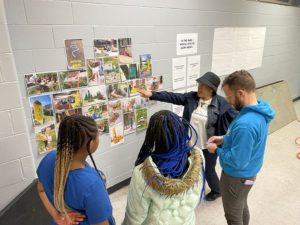
Clean Air Council, Tiny WPA, and Amber Arts and Design are gathering community inspiration, creativity and imagination to re-envision four Cobbs Creek Park entrances between Spruce St and Florence Ave. The goal of this project is to encourage community members to explore the park and trail at safe crossings, offer new play and learning spaces for children, and connect residents to park programming and activities.
This project follows years of community advocacy surrounding dangerous driving behavior and an absence of pedestrian infrastructure along Cobbs Creek Parkway. Cobbs Creek Park residents reported feeling unsafe walking, biking, and driving near the Parkway, creating a barrier to access the park and trail. Community demands for safer roadway conditions were finally answered in 2021 by the Streets Department and PennDOT’s Highway Safety Improvement Project, which installed life saving road safety measures including new guard rails, traffic signals, speed cushions, and other traffic calming measures.
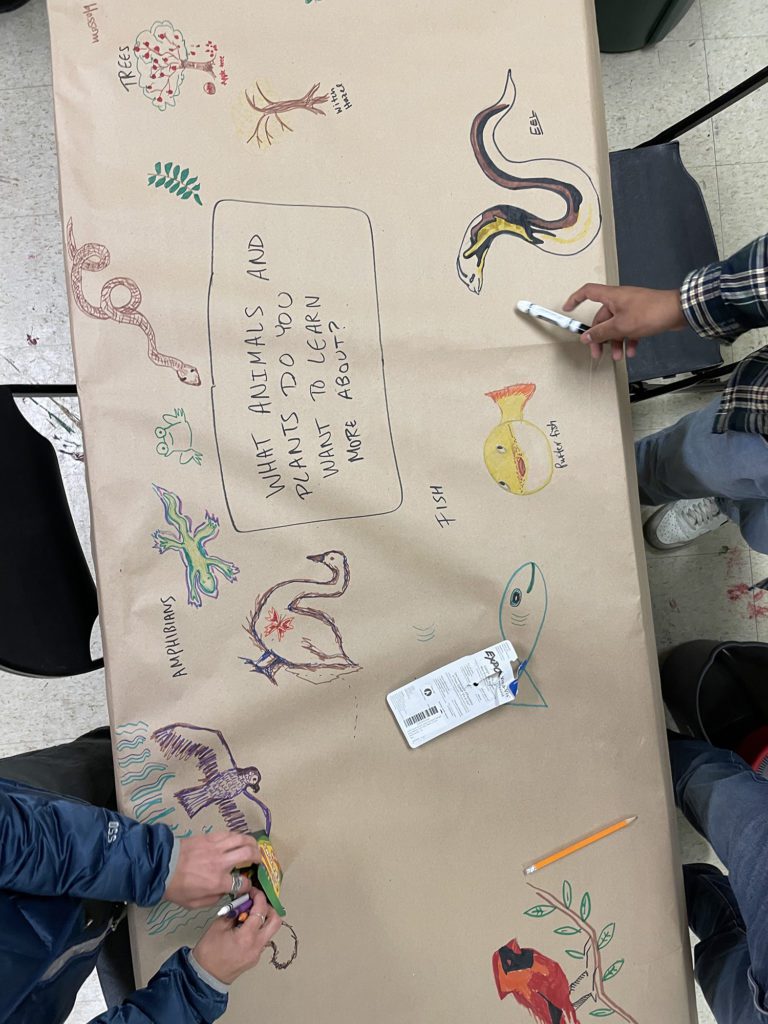
With new road improvements installed along the Parkway and additional safety improvements planned for the future, neighbors can more safely connect to Cobbs Creek Park. The Cobbs Creek Play Art Project aims to strengthen these connections by creating an overt welcome to the park and trail and inviting residents to have their fun. These sorts of inviting infrastructure, signage, and safe spaces follow recommendations from the Equity of Access to Trails Study, which was informed by Cobbs Creek residents.
The Play Art Project will incorporate asphalt art murals painted on the paved trail, and play structures immediately adjacent in the park next to the trail. The murals will highlight safe entrances with bright colors and community inspired images, themes, and words. Play structures next to the trail will further connect residents to and from the park, and offer features that children can climb, jump, and interact with to create lasting links between neighbors and the benefits and resources of the park and trail. Both features will offer learning opportunities that build children’s literacy related to the nature found in the park.
Three community workshops were held in the Spring of 2024 to identify locations, ideas, and themes for the project’s design inspiration. Workshop activities included Lego building, image voting, theme identification, collective poetry, location selection, and group mural drawings in order to identify community themes and subject matter for the designers to draw inspiration from.
Over the Spring of 2024 the project team sorted through resident input and feedback collected through the workshops and landed on final project locations and themes. Several themes emerged from workshops and survey’s with three guiding focuses for the design including active play, nature, and seating. The design will include child age appropriate connections to nature that highlight native plants, animals, creek/stream and trails that can be found within the park. The project will also include active play and rest areas that have elements of climbing and various forms of balancing. Four locations were identified for the project including Cedar Ave, 61st, Thomas Ave, and Florence Ave along Cobbs Creek Parkway/63rd St. The Play Art Project will begin design, permitting and fabrication in Summer of 2024 with installation due in Fall of 2024.
The Cobbs Creek Park Play Art Survey is open through June 1st, 2024 for Cobbs Creek Park area neighbors to inform the project. To learn more about the Cobbs Creek Play Art Project contact Will Fraser at wfraser@cleanair.org. Many thanks to KABOOM! And William Penn Foundation’s Play Everywhere Philly Challenge Grant funding for making this project possible.


